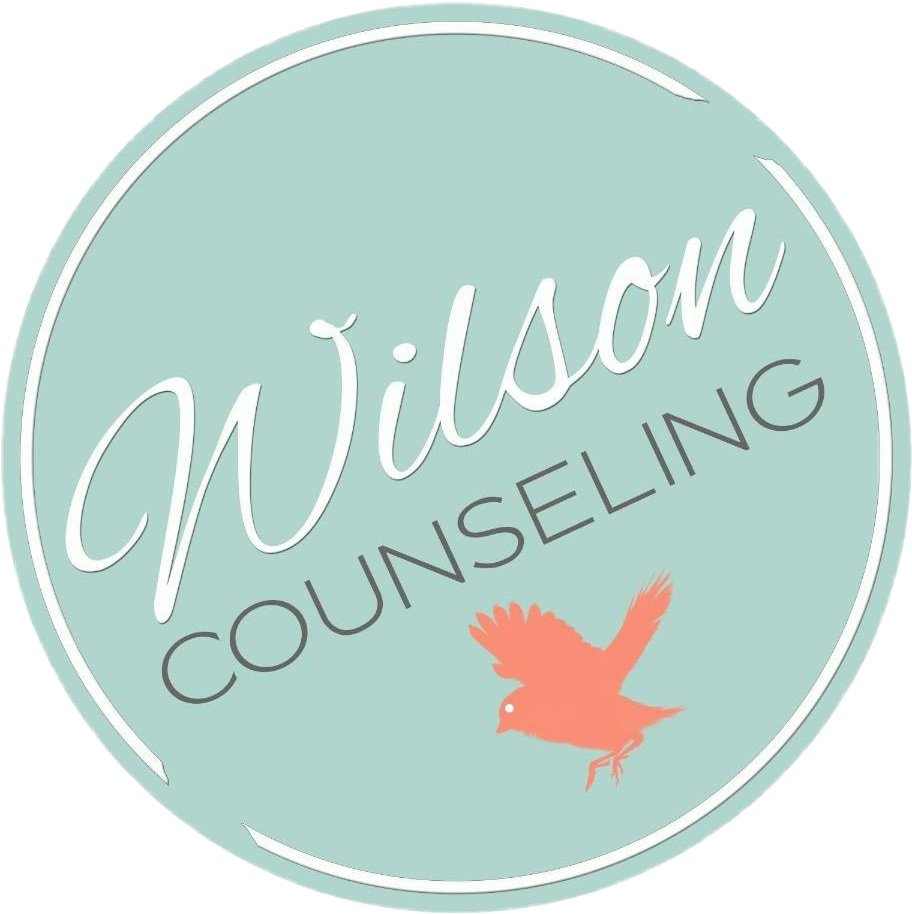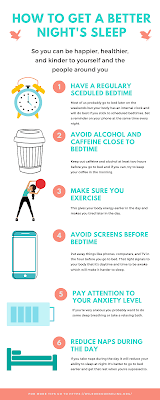If you don't sleep well, you don't feel well. Getting a good night's sleep is one of the best things you can do for your mental health. Sleep helps replenish your mind and body. It helps your mind process and figuratively hit the reset button on the stress and complications of the day.
What does sleep do for you? It helps in many amazing ways, such as it
Helps your brain sort and process your day. This ability helps create long-term memory and sorts information for when you need it later. Sleep helps your brain learn and remember.
Releases growth hormones which help you grow and help repair your body.
Contributes to healthy brain functioning and emotional wellbeing.
Allows your nervous system to relax.
Decreases the stress hormone called cortisol.
Strengthens your immune system by releasing a protein called cytokine. Cytokine help fight inflammation, infection and trauma to the body.
What are the repercussions of not sleeping?
Your brain has trouble focusing and remembering.
Your body has trouble healing, which can lead to increased risk of heart disease, high blood pressure and stroke.
Sleep deprivation increases your chances of weight gain and even obesity.
Your immune system may become compromised and have trouble fighting infection.
According to this article from the National Institutes of Health on Sleep Deprivation.
After several nights of losing sleep—even a loss of just 1–2 hours per night—your ability to function suffers as if you haven't slept at all for a day or two.
But sometimes you just can't sleep. Either you have trouble falling asleep or you have trouble staying asleep.
I made a video on how to sleep better with tips to help you make sure you are practicing good sleep hygiene. Good sleep hygiene will make it more likely that you can get a good nights sleep.
Getting a good night's sleep is crucial for our overall well-being and productivity. It’s amazing how something as simple as a solid night of rest can impact our mood, energy levels, and even our mental health. So, let's dive right into some practical tips that can help you get the restful sleep you deserve.
Create a Soothing Bedtime Routine
First things first, establishing a soothing bedtime routine is essential. Think of it as winding down after a busy day, a time to signal to your body that it's time to relax. Consider activities like reading a book, taking a warm bath, or practicing gentle yoga stretches. These activities can help transition your mind and body from the hustle and bustle of the day to a more peaceful state.
Optimize Your Sleep Environment
Your sleep environment plays a huge role in the quality of your sleep. Aim to keep your bedroom dark, cool, and quiet. If outside noise is an issue, you might want to try using a white noise machine or earplugs. Blackout curtains can help keep your room dark, and adjusting the thermostat to a cooler temperature can promote better sleep. Don't underestimate the power of a comfortable mattress and pillows—they're worth the investment for a good night's rest.
Limit Screen Time Before Bed
In today’s digital age, many of us are glued to our screens right up until bedtime. However, the blue light emitted by phones, tablets, and computers can interfere with our sleep cycle. Try to limit your screen time at least an hour before bed. Instead of scrolling through social media, consider more relaxing activities like listening to calming music, reading a book, or engaging in a hobby that doesn’t involve screens.
Incorporate Relaxation Techniques
Stress and anxiety can often keep us awake at night. Incorporating relaxation techniques into your bedtime routine can help calm your mind and prepare you for sleep. Deep breathing exercises, progressive muscle relaxation, and meditation are all great options. There are plenty of guided meditations and relaxation apps available that can help you get started.
Stick to a Consistent Sleep Schedule
Our bodies thrive on routine, and sleep is no exception. Try to go to bed and wake up at the same time every day, even on weekends. This consistency helps regulate your body's internal clock and can improve the quality of your sleep.
Be Mindful of Your Diet and Exercise
What you eat and when you eat can also affect your sleep. Avoid large meals, caffeine, and alcohol close to bedtime, as these can disrupt your sleep. Regular physical activity can help you fall asleep faster and enjoy deeper sleep, but try to finish exercising at least a few hours before bed so that your body has time to wind down.
Listen to Your Body
Lastly, pay attention to what your body is telling you. If you’re tired, allow yourself to rest. Pushing through fatigue can make it harder to fall asleep later on. Listen to your body’s natural rhythms and try to align your sleep habits with them.
So, what are you waiting for? Give these tips a try and say hello to blissful slumber in no time! Remember, sleep is not a luxury—it’s a necessity for your overall health and well-being. If you find that you’re still struggling with sleep despite trying these tips, it might be helpful to talk to a professional. As a Houston psychotherapist, I'm here to help you navigate these challenges and find solutions that work for you. Sweet dreams!
We hope you find these resources helpful! If you are struggling with loneliness, conflict, or anxiety, speaking to a professional counselor in Houston can help.
Contact us at Wilson Counseling to find out more about our services or to schedule an appointment. You can find out more about school + college counseling here. You don't have to go through this alone. We are in this together.
The advice in this blog is not a substitute for professional counseling.
OTHER THERAPY SERVICES WE OFFER IN HOUSTON, TX
Our services are available for adults, children, and teens. For individuals, we offer Couples and Marriage Therapy, Family Therapy, Eating Disorder Therapy, School and College Counseling, Autism Therapy, Perinatal and Postpartum Treatment, and Infertility Counseling. As well as Trauma Therapy, PTSD Treatment, EMDR Therapy, and LGBTQ+ Counseling. Our caring therapists also offer Career Counseling, and LPC Supervision. All of these services are also available through Online Counseling throughout Texas.


